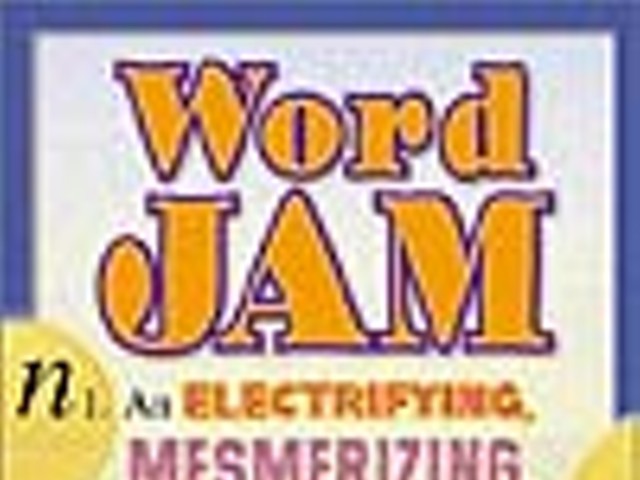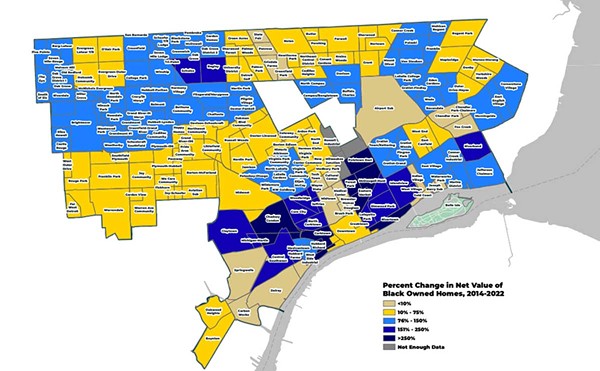During the past year, Detroit has seen more of its homegrown blues masters take flight for those cloudy pastures up yonder than most major cities can claim to have ever called their own. Famous Coachman. Chicago Pete. Willie D. Warren. John Lee Hooker. When you expand the scope of blues to include jazz, then the passing of jazz legend-teacher-master Harold McKinney shoves the thorn of pain that much deeper.
Hooker was by far the best known of all Detroit’s blues elite, and his passing leaves a hole in the blues that makes the Grand Canyon appear to be the size of your back pocket. Although perhaps not quite as well known internationally, the death of Harold McKinney leaves a gap in the music that is equally large. They were, and are, two of the most beautiful tones that Detroit has ever produced.
But more importantly, those who love jazz and blues and who love this city (sometimes the two kind of go hand-in-hand) should let this gulf remind them that the home of so many phenomenal blues and jazz musicians — and rock musicians, and techno, and Motown and on and on for however long you want to go — doesn’t have a major venue within the city limits where talent can be showcased.
I hope you’ll bear with me because this is a serious pet peeve of mine. For those who were looking to read about a major race-related issue or some other sociocultural topic that I usually delve into, I promise to get back to that stuff soon. Right now, however, I’ve got to get this one out of my system because the issue is starting to really work my nerves.
I know this isn’t New York or Chicago or Memphis or New Orleans or Austin or any other major city that seems to place considerably more value on offering an entertainment district where local and national musicians can be featured and promoted on a regular basis. Fine. Still, for the life of me I just can’t figure out why it’s so hard for this to happen here. I love the Motown legacy just as much as the next Detroiter, but just because they pulled up stakes all those years ago didn’t mean that all the notable talent worth promoting left town along with them, you know? The music is still here, and it’s here strong. Besides, Motown was never the only music worth promoting here in Detroit, which goes without saying to anyone who knows anything about the history of music in this city.
Now before I go too much further, I want to make it clear that I’m not dismissing the various — but very few — clubs within the city limits that feature local talent, nor am I writing off the casinos that have picked up a considerable amount of the slack. Still, neither casinos nor a handful of clubs can make up for the notable absence of an entertainment district where live music could be prominently featured.
Last year when I was working on a two-part series for this paper about the history of the blues in Detroit, one of the most fascinating parts of my research was learning about Detroit’s Paradise Valley, which was located in the downtown area where the I-75 corridor is now. Paradise Valley offered the kind of live musical entertainment seven days a week that could rival what was offered in any other city in the country. Anybody and everybody came through the Valley, and the joint was always jumpin’ with the best of both local and national talent.
Not anymore. Ever since the area was leveled in the ’50s to make way for the new freeway, there has never been anything else in this city to compare to it. The Motown machine certainly put the Motor City on the musical map to where the city’s name became synonymous not only with cars but with the famous “Motown Sound,” but even Motown couldn’t fill the gap left by the absence of a Paradise Valley.
Sure, there have been great clubs that have come and gone (some of them are still here), but for the most part they have always been scattered throughout the city. The primary drawback to this arrangement is that anyone looking for a good musical night out on the town first has to know which one club they feel like going to and staying awhile. Other than musicians who routinely drift from one jam session or gig to another, most folks won’t spend their evening getting in and out of their car, hopping from one club on one side of town to another somewhere else. And for those seeking either jazz or blues in the city, their choices are ridiculously limited.
It’s not that there’s anything necessarily wrong with all the musical establishments that have sprung up in the surrounding suburbs. If it weren’t for them there wouldn’t be anywhere for the musicians to work and nowhere for the public to go see Detroit music — except for those handful of venues. What’s wrong is that if John Lee Hooker were trying to get his career off the ground today, he probably couldn’t do it in Detroit. And the fact of the matter is that Hooker eventually did have to leave the city to get the acclaim that he deserved, even way back then.
No, Detroit isn’t the only city guilty of forcing its own to leave town to gain the type of exposure they really need, but that shouldn’t let Detroit off the hook. During all these past years of Detroit’s renaissance and revitalization that we’ve been told has been going on all around us — and I’ll concede that progress has definitely been made on certain fronts — it just doesn’t make sense that Detroit music and live entertainment doesn’t seem to figure into that equation.
Detroit music is one of this city’s most precious crown jewels. Maybe one of these days somebody in Detroit will take advantage of that resource once again. Everybody else in the world knows how bad we are; why don’t we?
Keith A. Owens is a Detroit-area writer and musician. E-mail [email protected]




